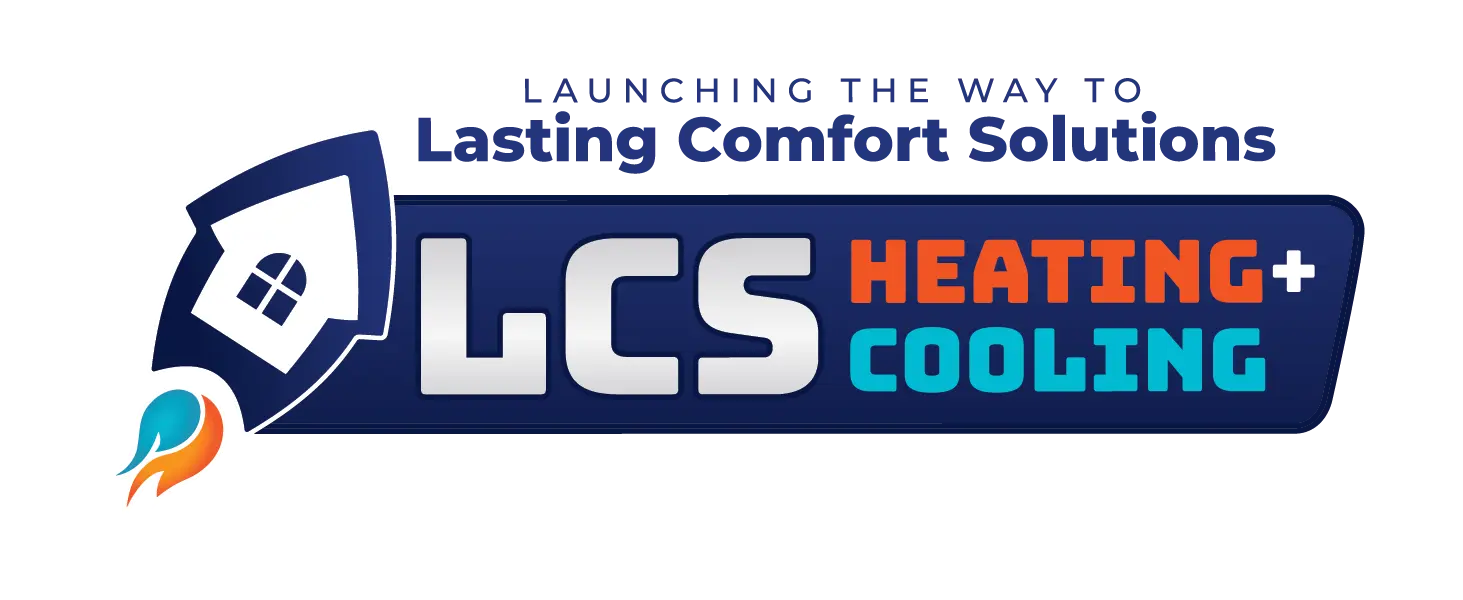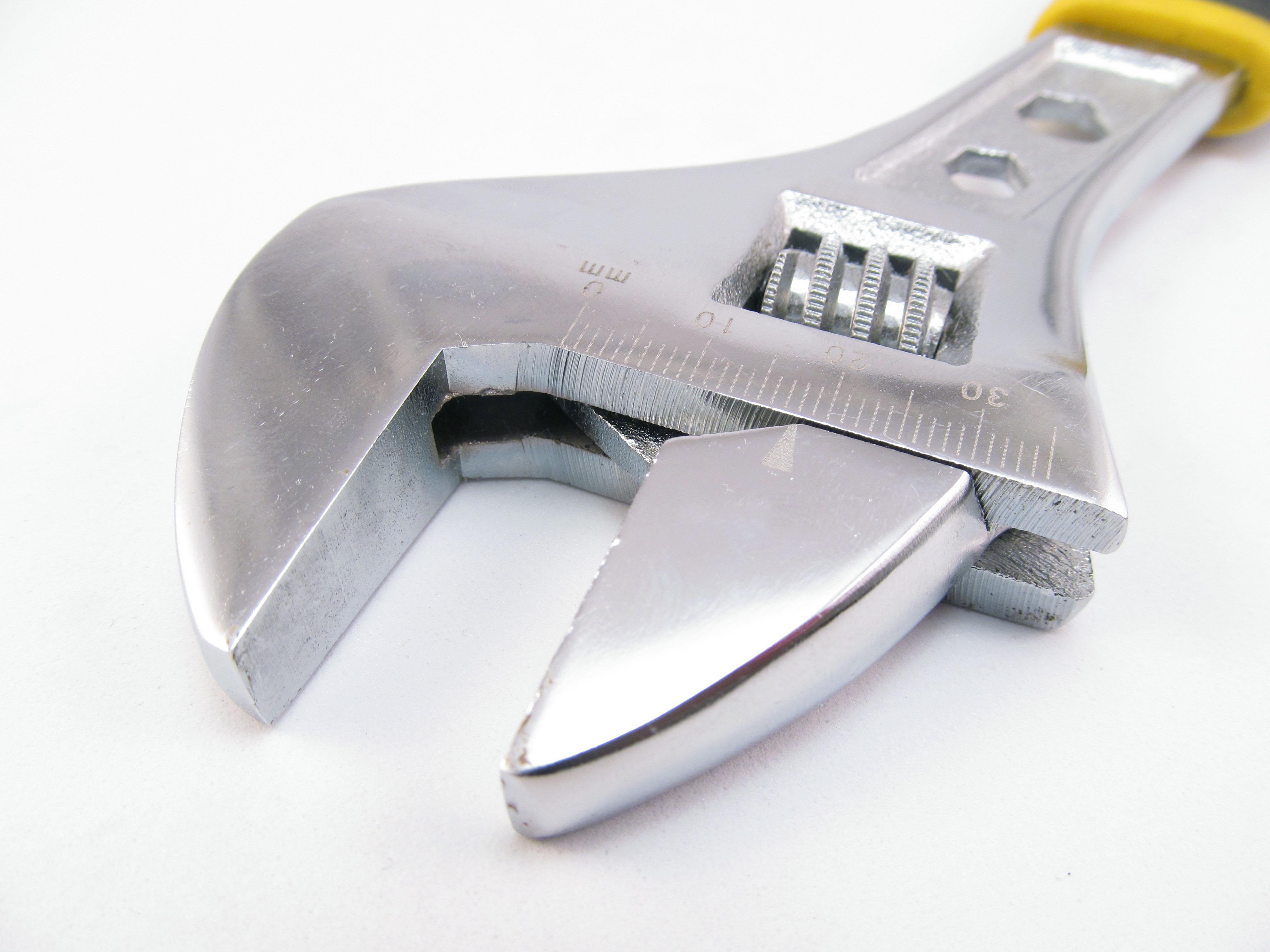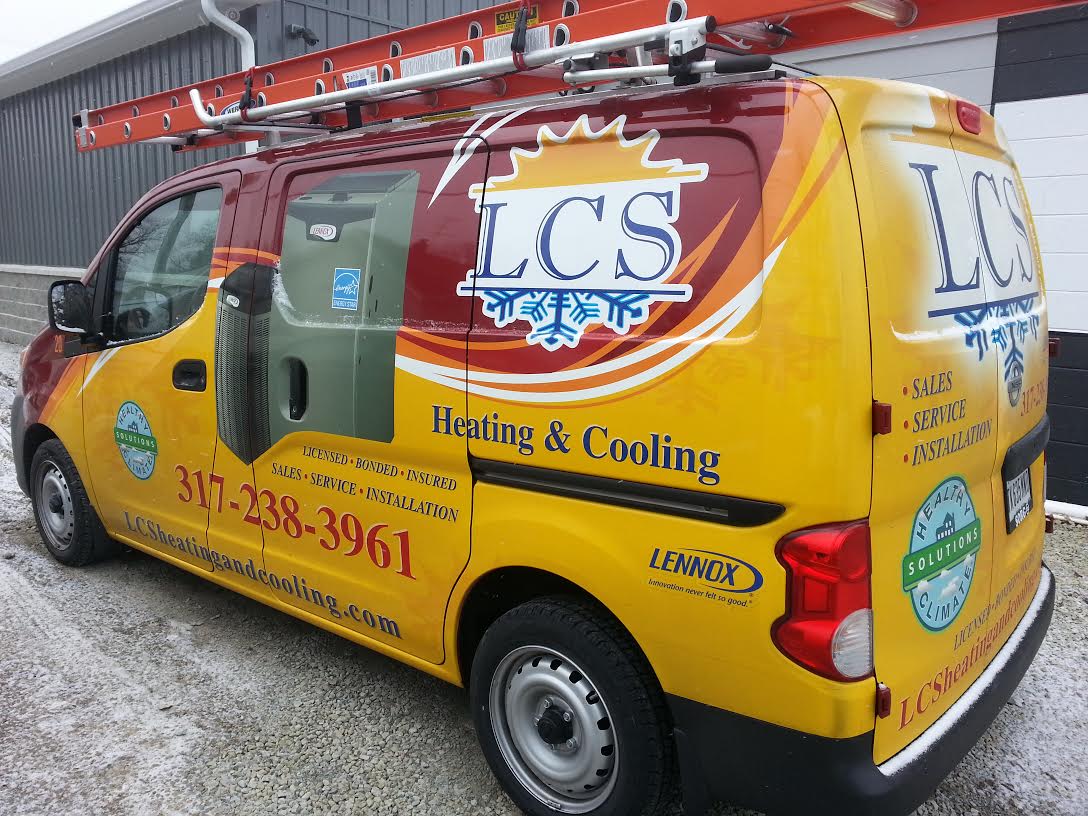It might still feel like spring now, but the hot summer days are fast approaching! And while it’s always nice to soak up the sun outside, we definitely want to keep cool indoors. For that, an efficient AC unit is key. Your annual maintenance plan appointment can help make sure everything is running smoothly. But what about those older air conditioning units?
By now, you may have heard about the refrigerant phaseout for certain HVAC systems. If you’re worried about what that means for you and your home, we’ve got the answers.
About the R-22 Refrigerant Phaseout
Regulations set by the Environmental Protection Agency (EPA) are now in effect for one of the most common ozone-depleting substances: HCFC-22, otherwise known as R-22 refrigerant. This phaseout means that no one in the country can manufacture R-22. It also means that this type of refrigerant is going to be harder and harder to find. And as the supply continues to dwindle, the product is only expected to get more and more expensive. An honest assessment of your current HVAC setup can help ensure you don’t end up wasting money.
How Will Homeowners Be Affected?
If you have a newer AC unit installed, this phaseout shouldn’t have any impact on your future repair or maintenance needs. But homeowners with older systems should definitely take note. Systems that are over 10 years old are probably still using the R-22 refrigerant. So you’ll want to be aware of the coming changes.
The good news is that you can still run your air conditioner or heat pump like normal if it uses R-22. You can even get regular AC repair services for these older units. Just know that if refrigerant is required, those repairs will likely be quite expensive. This goes back to the supply-demand dilemma. Now that production has stopped with R-22, it may not be the best idea to move forward with every repair. Some homeowners want to keep their system for as long as possible, and that’s okay! But if you have to rely on R-22 for a major repair, it might be time to look into options for a more cost-effective AC unit.
AC Repair vs New Unit Replacement
Although the HVAC industry technology continues to get more efficient year after year, no unit can last forever. Facts are facts. Systems that have been running for more than 10 years have a higher chance of running into problems. Regular maintenance can help extend the timeline for some equipment, but those repair costs can also add up fast. Knowing when to upgrade to a more reliable system can help keep your budget in-check.
Homeowners generally find that it doesn’t make sense to put a bunch of money into an older system that is out of warranty. If your equipment is still using R-22 refrigerant without any problems, then by all means, keep it up! But if you know your system has been struggling, it’s a good idea to start budgeting for a new system sooner rather than later.
There are actually a lot of rebates available right now to help you get a solid deal on your home’s new investment. If you’d like to start running the numbers, we’re here to help. We know that weighing the pros and cons of replacing your air conditioner can be confusing and even overwhelming at times, but the more you know, the better off you’ll be. Whether you’re looking for a second opinion or you just hoping to get through another summer with your existing unit, our team can work with you to get the repairs and professional insights you need.
May 13, 2020
Energy savings are usually a year-round concern for homeowners. You want to keep costs down, but still maximize your comfort. That’s where efficiency comes into play. Whether your HVAC system is heating or cooling your home, it always helps to keep on top of your maintenance plans. When you run the numbers with a truly efficient system, it’s easy to see how you can keep those energy costs low.
Utility Costs and Efficiency Ratings
In the state of Indiana, our average residential electricity rate is around 10.5 cents/kWh. To keep things simple, let’s just say you pay $100/month to power your home’s HVAC system. You might look at your utility bill and think that it’s an accurate statement for what you spend to heat your home in the winter or cool it down during the summer. But in reality, the equation is a little more complicated. The amount of money you spend isn’t just about the local utility rates. You also have to consider your equipment’s efficiency rating.
For units that are older, you might be looking at 80% efficiency. That means your costs can get pretty high because for every $100 you spend to heat your home, you’d essentially let $20 fly away. A furnace that’s operating at 95%, on the other hand, would only lose $5. The other $95 would go directly into heating your home. That’s why efficiency is key. If you’re living with an older furnace, heat pump, or air conditioner, you’ll have to think about these hidden costs. Your energy bill is likely higher than it should be.
Realistic HVAC Costs: Repair vs Replace
Having a general idea of where your HVAC equipment’s efficiency ratings are can help inform your decision for any repairs later on. Say your air conditioner doesn’t work like it should after the winter season wraps up. Will you need to invest in a completely new system? Hopefully not, but it all depends on the age of your AC unit and the repair costs. Thinking about those two factors will help point you in the right direction for whether to get HVAC repairs or a total replacement.
Here's one example to consider: A $500 repair on a 6-year-old system makes more sense than a $500 repair on a 16-year-old system. While you're spending the same amount of money, the chance of there being more repairs on that older system is pretty high. Sure, the upfront cost of a new system is more than the repair itself, but there's peace of mind with a warranty. Plus, you can look forward to those potential utility cost savings with a higher efficient system.
Ready for an Efficient HVAC System?
You’re probably already aware that changing your HVAC filter goes a long way for improving efficiency. But there are other ways to get energy savings too. Annual cleaning and tune-up services for both your furnace and air conditioner keep your systems running smoothly. Then you can limit your risks of having a bigger problem pop up down the road.
It might help to think of your HVAC annual maintenance like the regular oil changes and tire rotations you get for your car. (Plus, annual maintenance is what keeps your manufacturer and labor warranties in place.) Your equipment will work better when you just do a few simple things. To streamline the process, we offer our customers two different types of annual plans. It’s a low-cost investment for big rewards.
Our LCS Gold Membership includes two services each year: one cooling tune-up for your air conditioner, and the same for your furnace. It also gives you $20 off your regular-hours service calls, waives that service call for repairs over $300, gives you discounts on duct cleaning and indoor air quality products, and more. The membership is just $155 per year, and helps ensure that your equipment is running at its best—so you get the best savings on your energy bills.
Our LCS Platinum Membership includes those same maintenance services, but waives the service call with paid repairs completed during regular business hours. It also gives you discounted rates for after-hours service, a one-year supply of air filters, up to $700 in savings on a full system replacement, and more. To learn more about your HVAC repair options and how to improve your energy efficiency, please visit our webpage for annual maintenance plans. We look forward to serving you!
February 18, 2020
Temperature fluctuations can happen anywhere in your home. It might feel frigid upstairs even though you have toasty temperatures on the main level. You set the thermostat and expect your heating and cooling to respond appropriately, but that isn’t always the case. Your bonus room could be cold for a few different reasons. Taking a closer look at some of the possible causes can give you the insight you need to fix the problem for good.
3 Reasons for Your Cold Bonus Room
Having a cold bonus room over the garage is one of the most common heating issues for homeowners. Whether you’re using the space as an office, the kids’ playroom, or just another area for lounging, you want it to be as cozy as the rest of your home. Honing in on these scenarios can help.
1. Poor home insulation
Noticing an extreme temperature swing when you walk into a room is a sure sign of trouble. Some bonus rooms shift as much as 10 degrees from the rest of the house. One reason for this could be poor insulation. If you don’t have a good barrier between the garage ceiling and the base of your bonus room—or from the attic area above your bonus room—then it will be difficult for the space to retain heat. This is especially true during colder weather.
Adding some new insulation to your walls and ceiling might be enough to fix the issue. Spray foam insulation, for example, has become popular because it can provide more complete coverage. Of course, if you don’t want to go that route, there are other options.
2. Too many drafts coming in
Another reason why your bonus room is so cold might be from drafts. Instead of the warm air escaping, you could be looking at cold air coming in through gaps and spaces between your windows and the walls. When you place your hand over those seams, do you feel a draft coming inside? That could be your problem.
To keep your bonus room more sealed off from the elements, you’ll want to make sure you have enough caulk around your windows. This will work to cut off any drafts that are sneaking in. Plus, it’s a good practice to follow in any room of your home. The better insulated and sealed your home is, the better off you’ll be with your energy expenses. These are relatively minor fixes, though. For some homes, you might need to opt for a more robust solution to regulate your bonus room’s temperature.
3. You need a mini-split for comfort
Correcting an ongoing heating issue can make a big difference in how relaxed you are at home. You shouldn’t have to bundle up with sweaters and blankets just to keep from shivering. When your bonus room can hold a reasonable temperature throughout the year, you’ll really be able to enjoy and make the most of that space. Installing a mini-split system can give you the control you need for a cold bonus room.
These units work with specific areas or zones of your home. Instead of relying on one thermostat to balance out every room, a mini-split lets you target those problem places directly. Working with your local HVAC company can help you take care of those hot and cold spots for good. It usually only takes a quick visit to determine the right temperature control solution for your home.
If you’re in the greater Indianapolis area, let our team at LCS Heating & Cooling help you analyze your options. We’re happy to provide FREE sales calls so you can learn more about your home’s current heating and cooling setup. Feel free to give us a call at (317) 238-3961.
November 4, 2019
During the hot summer months, most homeowners don’t expect to find ice on their air conditioning unit. Unfortunately, this issue is more common than you might think, and having ice on your AC is a sure sign that something’s not right. Reviewing the likely causes can help you get your equipment back to its normal working state.
Problems with AC Ice
Once you notice that there’s ice on your unit, you need to turn your AC off. This can help prevent the situation from getting worse. Assuming it’s warm outside, this will help get the ice to melt, too. Let your unit thaw completely, then work through these different scenarios to identify the underlying cause.
1. Poor Airflow
If you’re lucky, the ice on your AC is the result of a more minor issue. After the ice has thawed, the first thing to do is to check is your air filter. Sometimes ice can form on air conditioners when there is poor airflow, so replacing your old air filter with a new one might be all it takes to get your unit running smoothly again.
One of the problems with dirty filters is that they put more stress on your evaporator coil. Reducing airflow over your evaporator coil can then cause your equipment’s temperature to drop below freezing. Consequently, humidity will start to collect around your AC and turn into ice.
Hopefully a new air filter will be enough to remedy the situation. To test this, wait for the ice to melt and then turn your air conditioner on again to see if the ice returns. If it doesn’t—then you’re all set. But if the ice comes back, there might be another problem.
2. Dirty Evaporator Coil
When ice forms even with a new air filter, you might be dealing with a dirty evaporator coil. This can happen with older units or AC equipment that hasn’t had regular maintenance.
In this case, you’ll want to turn the equipment off again and call on an expert to come clean the evaporator coil. Unfortunately, this isn’t something that homeowners can do on their own. The process requires a tech to fully removing the indoor coil to clean it, before re-installing.
Continuing to run your AC unit when this part isn’t working properly can cause a chain reaction of other issues. Rather than risk damage to your compressor or other AC parts, it’s best to call your local HVAC company to take a closer look. Odds are, they’ll be able to remedy the situation pretty quickly with by either cleaning your evaporator coil. Otherwise, they might have to take a look at your refrigerant levels.
3. Low Refrigerant
Systems that have low refrigerant aren’t able to keep the evaporator coil within the proper temperature ranges. If you have an issue with refrigerant—and not the coil itself—your AC unit probably has a leak.
Simply topping off the refrigerant isn’t usually enough to fix the issue. In fact, if you just add refrigerant without testing for a leak first, you might just be wasting money. Depending on the leak size, it could take several months of just a couple of days to have the problem come back. So, it’s a risk. (Plus, companies don’t provide a warranty on refrigerant, especially without a leak search and repair.)
For these reasons, it’s important for your HVAC technician to check for leaks whenever your refrigerant levels are low. If your tech can find the leak and repair it, you’ll be able to avoid other costly replacement parts. A detailed review of your system can help you figure out what’s wrong.
4. Broken Motors
The last reason you might have ice on your AC unit is if a blower motor or your fan motor is going out. These issues can also cause your system to freeze up due to restricted air flow. (Though this is different than poor air flow just from a dirty filter.) As with dirty evaporator coils and refrigerant leaks, if your motor has gone out, you’ll need an HVAC tech to come by for some repairs.
Time for AC Repair?
As soon as you realize that there’s ice on your AC unit, remember to turn your system off. Continuing to use your home’s air conditioning can just make matters worse. Replace your air filter as the ice thaws. That way, if the ice returns, you’ll know you need to call your local HVAC company to take a peek inside the unit.
If you’re located around the Indianapolis area, know that our team at LCS Heating and Cooling has got your back. We’re here to help you out whenever you notice issues with your AC in the summertime. Hopefully the ice on your AC is just the result of poor airflow from a dirty filter. But if the problem is more complicated, our team will make it right.
We know HVAC repairs can be annoying to deal with, but our expertise can get your home back to normal without too much downtime. For any questions about your air conditioner repairs and other function, just call LCS Heating and Cooling at (317) 238-3961. Summer is supposed to be enjoyable—we’ll help you keep it that way!
June 28, 2018
Indoor air quality in winter can leave a lot to be desired. It’s easy to tell when our home’s temperature is too cold, but what about when the air gets too dry or dirty? Being cooped up inside can make us forget what clean air is actually like.
This time of year, it helps to check a few filters around your home. (That’s right—there’s more than just one air filter!) Get these areas cleaned up now, and you should be able to breathe easy until spring.
1. HVAC Air Filter
It’s important to replace your air filter consistently year-round, but this is even truer in the colder months. Furnaces get a lot of use in winter, and a dirty filter will only make it harder for your system to cycle air. Replacing your filter can help keep your HVAC unit from over-working itself.
Most homes that use 1" filters (and especially ones with pets) need to swap out their filters monthly. Homes with media filters (4"-5" filters) don't need to be changed as often, but should still be checked every 6 months. This helps prevent dust from clogging your system. So when the heat kicks in, your indoor air quality should be nice and fresh. Plus, clean filters can improve your unit’s efficiency in winter. You get cleaner air—and a lower energy bill.
2. Kitchen Range Hood Filter
For the home chefs out there, if this filter isn’t already on your cleaning rotation, add it now. This quick chore can help a lot with lingering food odors—especially in winter. Baking cookies is great, but we don’t want every smell from the kitchen to linger forever!
Cleaning these filter screens is pretty straightforward. You just find the screens under your range hood, pop them off, and wash them in your sink. Mix extra hot water with de-greasing dish soap and let the filters soak for 5-10 minutes. Then grab a plastic brush and start scrubbing. Rinse thoroughly, and let the filters air dry. They should only be re-installed when completely dry, so don't rush the process if they're even slightly wet. Once they’re squeaky clean, you should be able to save time by washing them monthly in the dishwasher.
3. Bathroom Exhaust Fan
The ventilation system in your bathroom also deserves some attention. While the fan may not have a “filter” in it per say, it still works to keep your home air clean. It draws out moisture and helps prevent mold and mildew from creeping around your shower space. Inspect the exhaust cover regularly to keep the airway clear.
To clean your bathroom vent, all you need is a vacuum with a dusting brush attachment. Make sure the fan is off (or flip the circuit breaker) and pull the vent fan cover down from the ceiling. There will probably be a couple clips holding the fan cover in place. Just move those aside to detach it. Then carefully vacuum around the fan and motor, and detail-clean the grille cover itself. Replace the cover, and you’re done!
If you have a whole house humidifier, there's an additional filter you need to check this season. Most whole home humidifiers have a filter pad that needs to be changed once a year. It can be easy to forget! But when you’re an Energy Savings Plan member with LCS Heating & Cooling, we can take care of the filter replacement for you. It’s an easy option to add to your annual maintenance visit.
For any other HVAC repairs or air quality issues you might have this winter, please don’t hesitate to contact us. We pride ourselves on our customer service and are always happy to help with your air quality and heating questions!
January 25, 2017
When the forecast calls for freezing temperatures and snow, we get a lot of homeowners in the Indianapolis area wondering if they need to winterize their outdoor AC units. The quick answer is this: You really don’t.
Top 3 Myths for AC Winterization
Most people think they need to winterize their AC unit, but you’re actually better off just doing a quick check around their unit. Remove those piles of leaves, check for any obvious damage, and you’re pretty much good to go until spring.
Tip 1: It’s okay to leave the AC power on.
There are lots of AC winterization tips online that talk about turning the unit’s power off. Usually this isn’t even necessary. You might want to take this step if you already know how to disconnect the power—but don’t worry about it if you’re unsure. The only thing it does is keep your unit from kicking on during those unexpected warm days in winter. For the average homeowner, it’s totally fine to keep the AC power on in winter.
Tip 2: You don’t have to clear the snow around your AC unit.
Sometimes cleaning up your AC unit’s area is more trouble than it’s worth. Too many well-meaning homeowners have actually damaged their unit while trying to protect it. This tends to happen when clearing off snow or ice with a shovel, which can accidentally break wires. The same thing happens when weedeaters get too close to the AC unit in the warmer months.
Of course, it’s important to take this winterization tip with a grain of salt. You obviously don’t want a bush growing right into your AC unit. If plants are crowding your unit, take care when you trim them back. Clearing leaves and smaller twigs is also a smart move. Winter winds can blow them into your unit, and the freezing temperatures, snow, and slush can end up trapping the debris. You want to make sure your unit is free from any materials when you turn it back on in the spring. A quick sweep around the AC unit should be all you need before the big snowfalls hit.
Tip 3: There’s no reason to have an AC cover—unless you like the look.
Using a cover for your AC unit isn’t necessary for winterization, but some people still prefer to use it. At LCS, we’re happy to install covers for customers who request them. Some people just like how the cover looks. Others like to use covers because they help keep leaves and debris out. Just note: Heat pumps should never be covered. Because those types of units work year-round, homes with heat pumps usually keep them running throughout the colder months.
What’s more important is that you just check all around your unit to make sure you don’t see any visible damage. Any cracks and breaks in the unit can worsen when temperatures drop. Fixing those issues now can help ensure that your unit will be in good working order when you’re ready to use it again. That way, you’ll be all set for every season!
If you happen to need any HVAC repairs in the Indianapolis area, the LCS Heating & Cooling experts are here to help! Just call (317) 238-3961 for year-round assistance on all your HVAC repairs, installs, and questions.
December 9, 2016
It can be hard to figure out the best course of action when your HVAC unit starts acting up because there are so many factors to consider. The size, age, financing options, and repair costs on an HVAC system all contribute to making the “right” decision on whether to repair or replace.
As a general rule, it’s usually a good idea to replace a product when its repairs are climbing over 50% of a new item cost, but a real cost comparison is often more involved. Sure, a repair bill of $300 isn’t nice to look at, but it still looks cheaper than an entire system upgrade. On the other hand, the lower cost isn’t always the smartest move. Say your equipment is 15 years old and you’ve already made a $500 repair earlier in the year…well, then the math may not be so easy. Trying to predict what else might go wrong with your unit in a couple years (or even the next 6 months) is a tricky gamble. That’s why we recommend looking at some concrete facts.
Reasons to Repair
1. Is the broken part under warranty?
When a part is covered under warranty, it’s usually best to get the repair and move on. You might still want to consider the cost of the labor (if there is any), but warranties usually make the repair vs. replace conundrum pretty clear-cut. If nothing else is wrong, why pay for a new air conditioner or furnace?
2. Is your system less than 10 years old?
Your HVAC equipment might have different life expectancies, but heat pumps, air conditioners and furnaces are said to last 12 to 15 years on average. If your unit is 10 years old or less, your chances of having frequent problems are a lot lower, so making the quick repair tends to be more appealing than full replacement.
3. Are you planning to move in the next year or two?
When your odds of moving are high, confirm that your unit isn’t at the end of its projected lifespan before opting for the repair. Replacing or upgrading your HVAC unit could help your house stand out to potential buyers; but if the unit is in relatively good condition or still under warranty, you might be better off sticking with the easy fix.
4. Is the unit right for your home?
This question can be a little trickier to answer on your own, but a good HVAC tech will tell it to you straight. Some furnaces and air conditioners are actually too big for their home they are installed in and end up wasting energy and money. Proper installation goes a long way with your unit’s efficiency too, so if you trust that your unit is in the right location, sized right, and has the right efficiency rating, you’ll likely feel good about getting the repairs.
Reasons to Replace
1. Has your unit needed costly repairs in the last two years?
Older HVAC systems are more likely to have frequent repair issues. When your unit has passed the warranty coverage date and repair costs only seem to escalate, you’re probably toeing the line for replacement.
2. Has the system been under-performing in other ways?
Maybe you’re constantly adjusting the thermostat to get comfortable, or the air indoors feels stuffy, damp, or just “off.” Is your furnace or air conditioner starting to sound louder than ever before? Some of these annoyances could be fixed with quick repairs, but if not—it might be time for new equipment.
3. How much could you save with a more efficient unit?
Check out the energy savings calculator to estimate the money you can pocket each month from a system upgrade. The latest technology can cut energy costs by as much as 40% and still run quieter than models made 10 years ago. If you’ve made other efficiency updates to your home—like new windows or insulation—an HVAC system with a good ENERGY STAR rating might be what you’re missing to really kick those saving into high gear.
4. Are good financing options available?
If your HVAC company can help you identify cost-effective financing strategies, a system replacement might be worth your while. When considering replacement options, knowing about seasonal specials, manufacturer rebates, or 0% financing opportunities with a local bank can make you feel a lot better about going with a new air conditioner or furnace.
Now that you’ve weighed the possibilities, tally up your Yes and No answers from each category. Answering “Yes” to 2 or more questions is a good indication that you’ll want to consider that side’s solution. Consult with your local HVAC tech if you’re still on the fence. They can help walk you through the different scenarios for your current system and home setup so that whether you choose to repair or replace, you can feel confident that it’s the right decision for you and your home!
June 23, 2016
LCS Heating & Cooling has such loyal customers and we’re honored to serve you! Year after year, you trust us with one of the most important functions of your home—its comfort level. Whether your house is feeling too hot or too cold, smelling too musty, or creating too much static or dust, the LCS team is here to help you out. Your home should be able to give you a comfortable, indoor atmosphere for every season. It’s our job to make sure your HVAC systems are always on their A-game.
How do we do it? Well, we listen to your feedback! We make customer service our top priority, hire and train quality personnel, and take our business very seriously. It’s because of you and your referrals that LCS Heating & Cooling continues to grow. Take a look behind-the-scenes, and you’ll see we’re always working hard to earn more of your all-star reviews. Thanks for growing with us!
Easy HVAC Scheduling—even with HVAC Emergencies
What happens if your air conditioner or furnace starts acting up in the middle of the night? Or on a holiday? No one wants to wait for service! You want it fixed ASAP, and the LCS team totally understands. We’ve got a great scheduling system in place to help get these “HVAC nightmares” under control.
Our team is available 24/7 to take your calls. So if you want service, you’ll get it! Our customers always have someone to talk to when issues pop up—whether it’s with one of our office staff or one of the people with our professional answering service. If you need immediate service after-hours, the LCS technician on call will handle it right away. For non-emergency calls received after hours, the folks answering will take a message. Our office staff will then follow up with you the next business morning. Pretty easy, right?
Excellent HVAC Personnel and Quality Training
We take great efforts to seek out new, quality team members and only hire the best. Our customers deserve to work with awesome LCS employees, which is why we run every new hire through a background check and driver screening. Plus, each of our new hires meets with the owners, Travis and Renee, after 30 days and again at 90 days to ensure that their training is on track.
You are guaranteed to get the same high level of service with every LCS team member because all of our HVAC personnel are trained the same way. That same code of ethics that helped start this company over 10 years ago has been passed down to each LCS employee. Travis’s honesty and thoroughness with customers and Renee’s responsiveness are embodied by everyone on the team. We train our staff to uphold our high “LCS-level” of customer service, so you can trust that any new faces with LCS will be on par or even better than your last tech. We’re extremely proud of our team’s expertise and professionalism—we know you’ll agree!
Energy Savings Plans for HVAC Maintenance Customers
Last but not least, we’re pleased to continue providing Residential Energy Savings Plans (ESP) for ongoing customers. These offers include one annual heating and one annual cooling tune-up, along with options for filter changes, humidifier service, a tankless water heater flush, and UV bulbs.
Preventative maintenance helps customers get the maximum efficiency on their units at a minimum cost year-round. With service call discounts, 15% off repairs, and 15% off indoor air quality products, this package is a great way to keep your HVAC unit in tip-top shape through every season. And our ESP customers never get charged for any overtime work. An LCS tech will be on the job—at no extra charge—day or night for any of your emergency HVAC repairs.
The LCS future is looking extra-bright thanks to our loyal customers and new team members. We’ll only keep getting better as we continue to grow. Since 2005, our company’s service has collected dozens and dozens of rave reviews from customers. We appreciate your feedback and couldn’t have come this far without you! Thank you so much for being an LCS fan and for making us your favorite HVAC company in the Indianapolis area!
Got a review to share? We’d love to hear it! LCS Heating & Cooling is on Google+ and Yelp. Check us out!
April 28, 2016
In an ideal world, furnaces and air conditioners would only need service during regular business hours of 8am-5pm, Monday through Friday. That's not reality though! Customers will often say things like "I'm having people over for the holiday and my furnace just quit working" or "of course this couldn't have happened during the day" or "it was working fine yesterday!" HVAC can be unpredictable which is why Emergency Service or After Hours Service is available.
We want to provide a little information on our after hours service and some changes that have taken place within LCS. We have a story for you:
Many of you have either met or spoken to Travis or Renee, the owners of LCS Heating and Cooling. For over eight years, Travis and Renee took all of the incoming calls. With the continued growth of LCS, they were finding that they couldn't keep up on the calls. People were getting frustrated for a few reasons: 1. They were getting voicemail when they called 2. Their calls were not getting returned fast enough 3. They felt that their HVAC needs/projects/jobs weren't important. 4. Travis' phone ringing while he was meeting with customers made the customer feel like he wasn't focused.
Obviously, this was a problem! Travis and Renee felt that their inability to keep up with the phone calls was affecting the high level of customer service that they wanted to offer. The solution:
In July of 2013, they hired an office manager. Chasity is a great asset to the LCS team! Phone calls that are coming in during the day are answered, phone calls are returned and follow-up calls are made in a timely manner. Of course, Travis and Renee are always reachable by phone or email but Chasity handles much of the scheduling now.
The one problem Travis and Renee were still having was answering all of the after hours calls. These calls were being forwarded directly to Renee's cell phone. Every night, every weekend and every holiday, Renee and Travis were answering calls. Their solution to being on the phone so much was to let after hours calls go to voicemail and then returning the calls that were emergency calls in which someone needed service right away. As it turns out, people don't like leaving a message! If they needed service at 9:00pm, they didn't want to leave a message about it. They wanted to talk to someone about getting service! After receiving some great feedback from customers regarding talking to a real person versus leaving a message, Travis and Renee decided they needed a new solution. They couldn't handle all of the calls but customers didn't like leaving messages. The solution:
In February 2014, Travis and Renee hired an answering service. The answering service simply acts as an extension of LCS Heating and Cooling after regular business hours. ALL calls are answered and our customers will always have a person to talk to...whether it's midnight, a Sunday or a holiday. If the call is for immediate service, the information gets sent to the LCS technician on call. These calls are then handled right away by the technician. If the customer is calling regarding something other than immediate service, the information is sent to the LCS office and either Chasity or Renee will follow up the next business morning.
Why are we telling you all this? Because we care about what our customers think and we want our customers to understand the process. We've had some mixed feedback regarding the answering service. Most of it has been good as people are happy to have the phone answered no matter when they call. We've also had some great feedback regarding phone conversations with the answering service themselves. They are efficient and we are happy with their service. We have had some feedback in which people are unhappy that it's not Travis or Renee answering the phone or that Travis isn't available to talk at that time. This has been an adjustment for everyone. It's hard to make changes when things have been done a certain way for almost nine years.
We promise, these are GOOD changes. Providing the best possible customer service is a priority for us. We want to thank you for your business, your referrals and an exciting 8.5 years! We're looking forward to growing our business with you and providing you exceptional service...any time, any day or any night. If you have any feedback for us, it's always appreciated and can be emailed to Renee through the website: www.LCSheatingandcooling.com
March 13, 2014









